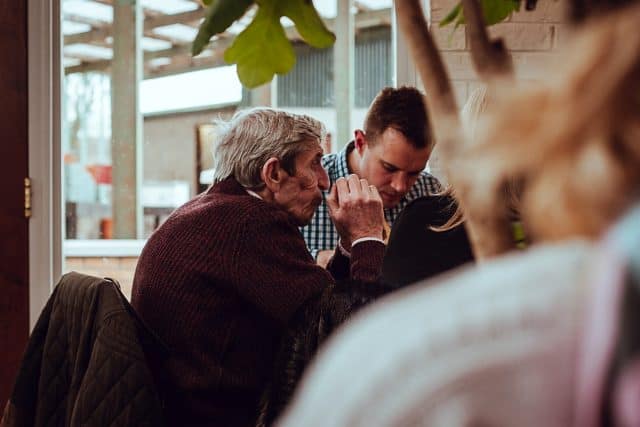CNN Money states that a 65-year-old couple spends around $583 per month on healthcare. This figure, CNN Money indicates, will rise—in fact, even double—per month at 85.
Combine these stats with the fact that healthcare in general and home health care costs are rising, and it can become overwhelming for caregivers looking after an elderly loved one to make sense of the healthcare fiasco.
If you are in this situation, you are not alone: according to Harvard Health Publishing, roughly 43.5 million caregivers are looking after an elderly loved one.
That said, in this article, we will look at some ways you can help your elderly loved one with their healthcare costs, and how they can reduce them.

1. Help Your Elderly Loved One Do the Research
There are hundreds, if not thousands of healthcare facilities and healthcare providers, which makes research an inevitable step—especially if you want your loved one to save on high medical expenses.
When High Costs Cannot Detract from the Level of Care
Of course, in some cases, it is best to spend more on providers who are specialized and have more experience. In this case, your loved one stands a better chance in receiving the necessary care he or she needs with their individualized health.
Let Your Elderly Loved One Have Control
Still, according to the American Psychology Association, as older adults age, they may feel a loss of control because of their increasing physical limits—failing eyesight, hearing loss, etc. In which case, it is not uncommon for some to become depressed or anxious.
For this reason, it is important that, while you can help them decipher their healthcare options, ultimately you let them decide on their health (however, depending on the loved one’s health, there are exceptions). If they don’t understand, for example, what is HIPAA compliance, we need to help them understand their rights and options.
2. Medicare at a Glance
On July 30, 1965, President Lyndon B. Johnson made Medicare official. Fifty-two years later, and Medicare is still a viable option for elderly Americans.
In a nutshell, Medicare is a government-run insurance plan for those ages 65 or older (and people under 65 with specific disabilities and those with end-age renal disease—in other words, kidney failure or a kidney transplant).
When you do help your elderly loved one enroll in Medicare, know that they probably will automatically have Original Medicare, unless otherwise specified.
Other Medicare options include Medicare Advantage Plan (HMO or PPO) or Medicare Prescription Drug Plan.
Overall, it may be beneficial for you to talk about the Medicare options with a Medicare representative so you have a better picture of what is available.
3. Consider In-Network Providers Versus Out-of-Pocket Providers
Surprisingly, while Medicare is a government-run program, some providers may be “non-participating providers,” in which case not all services offered by this provider will be covered by Medicare, as Investopedia reports.
Nonetheless, as Investopedia states, some providers may accept Medicare patients, however, may not provide Medicare reimbursement rates.
You may need to help your elderly loved one decide if this is an extra expense they can overlook—especially concerning a doctor they’ve been going to for years—or if it is time to look for providers accept all Medicare-covered services.
4. Take Care of Yourself
Caretaking is a demanding job, sometimes requiring you to put all of your efforts and energy into ensuring your loved one receives the best treatment.
It is not uncommon for caretakers, at one time or another, to feel burnt out. That being said, make sure you don’t ignore your own needs. Take time to exercise, eat healthy, and receive the support you need to handle this situation.
Final Thoughts
Helping to take care of your loved one can be a demanding (yet loving) task. Consider these tips as well as conduct more research to see how you can reduce your loved one’s healthcare costs. Have any other tips? Leave a comment.
This post has been sponsored by outreachmama
Wendy Dessler
Wendy is a super-connector with Outreachmama who helps businesses find their audience online through outreach, partnerships, and networking. She frequently writes about the latest advancements in digital marketing and focuses her efforts on developing customized blogger outreach plans depending on the industry and competition.


